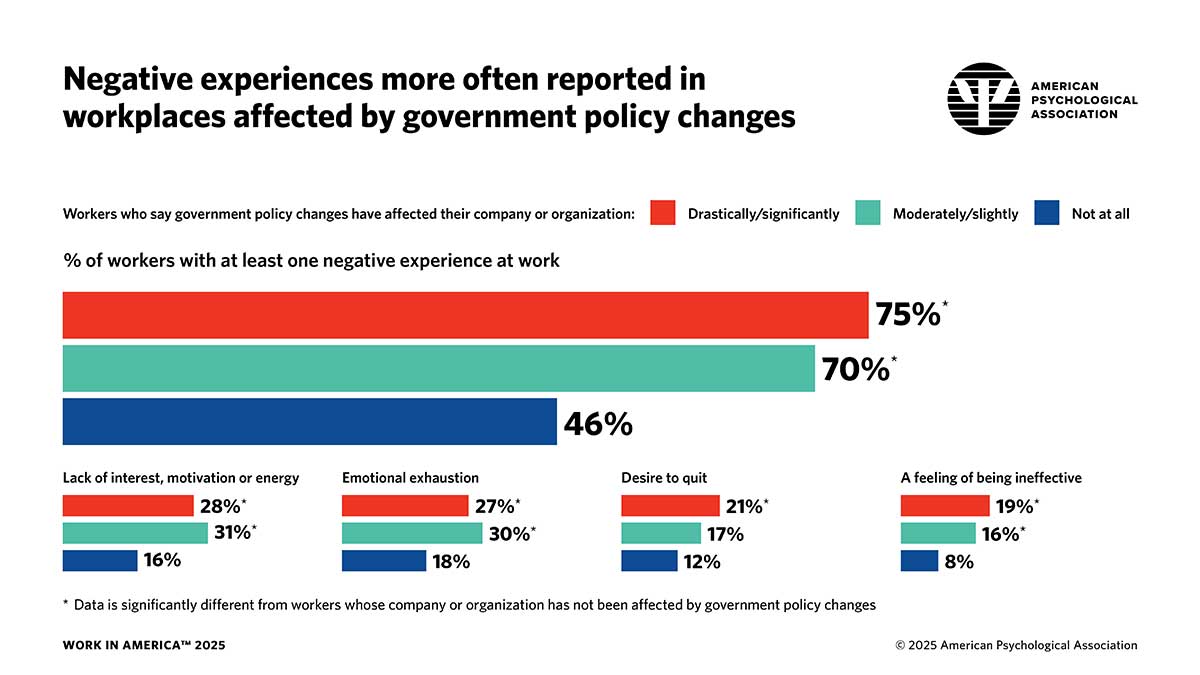
Employers told they have a key role in helping employees cope

Concerns about job security stemming from recent US government policies are driving employee stress in the workplace, according to a new report, which states employers play a significant role in supporting mental health.
Seven in 10 employees in the latest research from the American Psychological Association (APA) said job insecurity has a significant impact on their stress levels at work.
Another 59% said it has a moderate or slight impact on their stress levels.
This job insecurity stems from recent government policies implemented in the United States, which ordered heads of federal agencies in February to "undertake preparations to initiate large-scale reductions in force."
Job cuts surged that month following layoffs in the federal workforce and thousands of retrenchments in the private sector, according to data from Challenger, Gray & Christmas.
APA's report found that 65% of employed adults are part of organisations or companies that have been impacted by recent government policy changes.
A fifth (20%) of the respondents said the impact has been significant, which led to changes in their operations or strategy.
These changes have left 42% of employed adults anticipating changes at their company due to future policy changes – with the proportion rising to 53% for local, state, and federal government workers.
Another 75% said they experience at least one negative effect at work, such as lack of motivation, emotional exhaustion, or desire to quit.

"This cultural moment is threatening workers' sense of stability, control, and ability to meet their basic needs. And feelings of insecurity at work and poor mental health can amplify each other in a vicious cycle," said Arthur C. Evans Jr., PhD, APA's chief executive officer, in a statement.
According to Evans, employers have a responsibility to go beyond awareness on mental health and invest in evidence-based strategies to promote psychological wellbeing among employees.
"This year's survey makes one thing clear: unmanaged stress is not just a personal health issue – it's a critical organisational risk, contributing to lower productivity and higher turnover," he said.
The report advised the cultivation of a sense of belonging in the workplace, noting that employees are more likely to thrive when they are satisfied with their relationship with their manager.
It also pointed out that workers are less likely to be worried about losing their job when they feel they matter to their employer and coworkers.
"Employers who provide effective mental health support, foster healthy relationships between employees and their managers, and treat employees as if they matter may feel more stability during times of economic uncertainty," the report read.